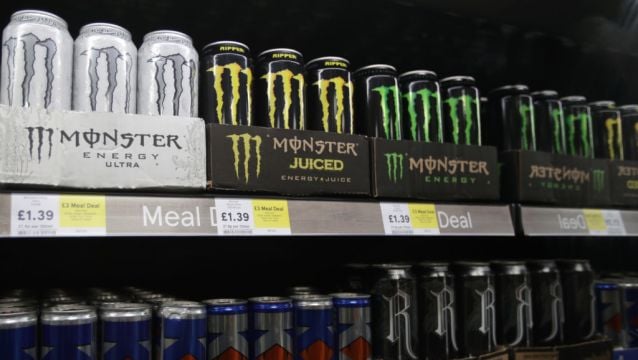People with genetic heart diseases should watch their energy drink intake as it may trigger a life-threatening condition requiring emergency treatment, doctors have warned.
Energy drinks can potentially disrupt the heart’s electrical system, increasing the risk of abnormal heart rhythms (arrhythmia) which lead to severe health consequences such as a sudden cardiac arrest – where the heart stops beating.
Researchers at the Mayo Clinic in the US looked at the medical data of 144 patients who had survived a cardiac arrest following emergency treatment.
Seven of them, aged between 20 and 42, had consumed an energy drink some time before the life-threatening event, with six requiring electrical shock treatment and one needing manual resuscitation.
Three of the patients were regular energy drink consumers and four were revealed to have a type of genetic heart condition.
Researchers said that other factors surrounding the event, such as sleep deprivation, dehydration, dieting, extreme fasting, vaping and antibiotic medication, may have created a “perfect storm”, leading to sudden cardiac arrest in these patients.
While the study, published in the Elsevier journal Heart Rhythm, did not prove a direct cause, the researchers still recommend consuming energy drinks in moderation.
Peter J Schwartz, of the Centre for Cardiac Arrhythmias of Genetic Origin and Laboratory of Cardiovascular Genetics, in Milan, Italy, wrote in an accompanying editorial: “Critics might say of these findings, ‘it’s just an association by chance’.
“We, as well as the Mayo Clinic group, are perfectly aware that there is no clear and definitive evidence that energy drinks indeed cause life-threatening arrhythmias and that more data are necessary, but we would be remiss if we were not sounding the alarm.”
Energy drinks contain caffeine ranging from 80mg to 300mg per serving, compared with 100mg found in a cup of coffee.
Many of them also contain other additional ingredients, such as taurine and guarana, which are thought to alter heart rate, blood pressure and other heart functions.
Lead investigator Dr Michael J Ackerman, a genetic cardiologist at Mayo Clinic, said: “Although the relative risk is small and the absolute risk of sudden death after consuming an energy drink is even smaller, patients with a known sudden death predisposing genetic heart disease should weigh the risks and benefits of consuming such drinks in the balance.”







